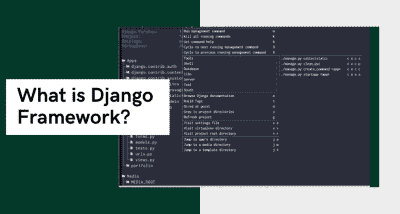Information Security Analyst
- Amruta Bhaskar
- Sep 28, 2020
- 1 commentaires
- 2803 Vues

What is information security analysis? It is an incredibly important field in today's business environment since most organizations rely heavily on information systems in their daily work. Information security analysts work to secure information networks and systems in many different types of organizations. They protect computer networks by monitoring for and responding to threats.
Information security analysts protect computer networks at companies, nonprofits, and government agencies. They work in computer systems design services, as well as in finance, insurance, and administrative support services. To become an information security analyst, individuals typically need a bachelor's degree in information technology or another computer-related major. Employers sometimes prefer candidates who hold a master's degree.
Information security analysts oversee computer network systems to stave off potential security breaches. They maintain systems by updating software and recommending security updates to management. Information security analysts also work one on one with employees to help them understand new programs and hardware. With the growing prevalence of hackers, more companies need information security analysts.
The U.S. Bureau of Labor Statistics (BLS) projects 32% employment growth in the field of information security analysis from 2018-2028, much faster than average. This guide covers how to become an information security analyst, what you can potentially earn, and how to advance your career.
As the job title infers, security serves as security analysts' primary goal. These analysts aim to identify weaknesses in networks' security systems, patch or respond to issues, and prevent future breaches from occurring. Security analysts may use various software, including programs designed to encrypt and protect data, to increase and strengthen the security of digital data.
Within larger companies and organizations, security analysts may work with teams of the network, information technology (IT), and computer specialists. They often work with these other professionals to design security protocols and systems, and to protect company data from hacks and breaches.
As evidenced by recent data breaches in major companies, security analysts play crucial roles within these structures. They empower businesses and organizations to better protect customer and user data, in turn maintaining the integrity and reputation of those organizations.
Security analysts may take on new roles as they advance within the field. For example, entry-level security analysts may assume lower-level roles in IT teams, helping users navigate new systems and installing new software. More experienced analysts may design and implement entire security systems and firewalls, overseeing teams of security and IT professionals.
The typical day for a security analyst can vary greatly depending on the specific position. They may begin their day by looking over reports from the previous day or shift, including checking for any new threats and identifying malware that may have infiltrated the system.
Security analysts may also prepare for and respond to system breaches or attacks. These processes might differ between workplaces and employers, but they generally include responding to hacks or network insecurities and working to prevent new ones. On a typical day, a security analyst may meet and connect with other IT professionals at their workplace to collaborate on efforts to protect data and network infrastructure.
Security analysts enjoy plenty of mobility, as jobs in the field covering many geographic areas, industries, and employers. Where analysts choose to work can impact their earning potential, as can the types of roles they take on. Security analysts work in all sectors, including computer and software engineering, management, and finance. This section introduces the industries and employers that commonly employ security analysts, plus which cities offer the highest salaries.
Your industry can also impact the daily tasks and duties you perform in your career. Different industries require different responsibilities, and they may require security analysts to work alongside different types of professionals.
Most security analysts work in the computer and information technology industries. The next-largest group of security analysts works in finance and management. Other security analysts work in administrative roles. All kinds of companies and organizations employ security analysts and other IT professionals, so these administrative roles vary by employer.
Employers and the industry can impact earning potential, as well; certain industries and jobs may offer higher salaries and more advancement opportunities than others.















September 29, 2020 | berenice aldway